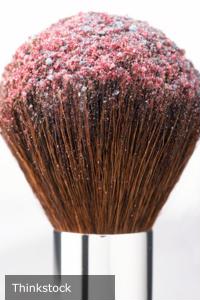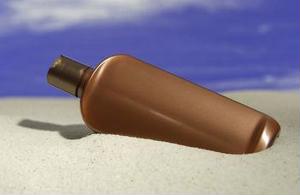
When you find that perfect African American skin care product, you may be tempted to hold on to it forever. It's important to remember though, just like food, cosmetics have expiration dates, and you want to replace each product when the time comes. RealBeauty.com has a guide explaining when each different piece of makeup should be tossed.
First, liquid foundation should be replaced every six months. The beauty site recommends storing this product in a cool, dry area as heat can cause lotions and potions to separate or spoil.
Next, the news source made recommendations on blushes and bronzers.
"Powdered blushes and bronzers are good for six to nine months. The key here is to replace your brushes and applicators when you replace your compacts," according to Real Beauty.
Fitness Magazine offered another suggestion for how to make foundation last a little longer. Always using a sponge when applying this cosmetic instead of using your fingers could help keep harmful bacteria out of the bottle and give foundation a longer life.









